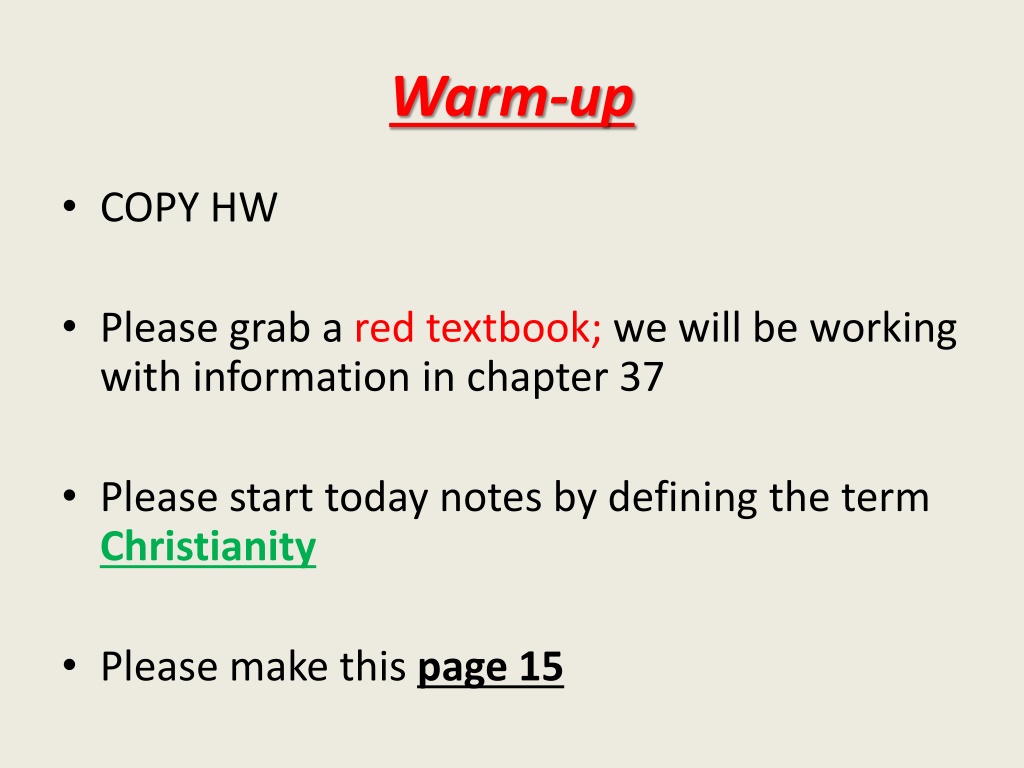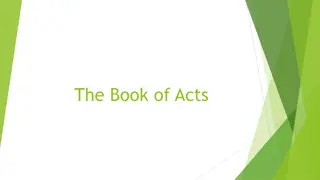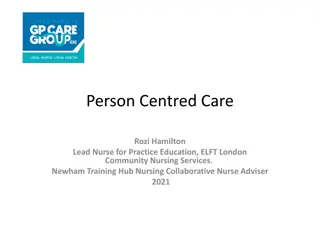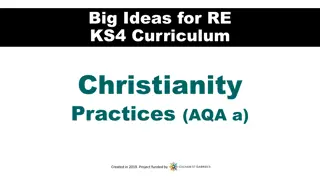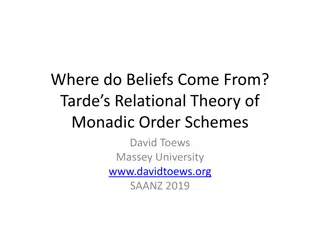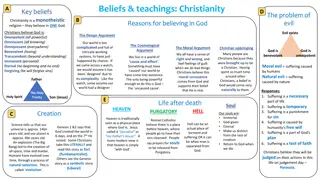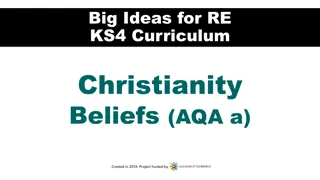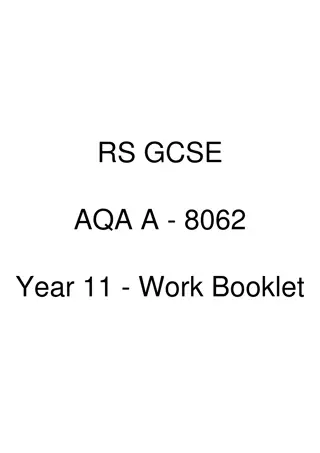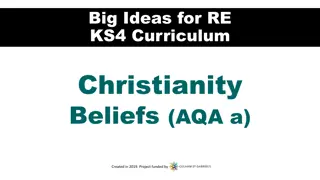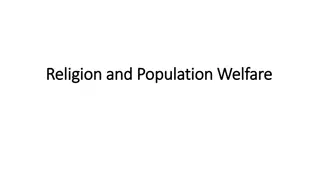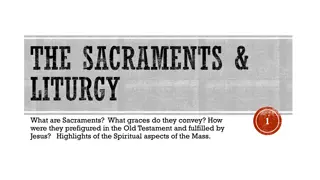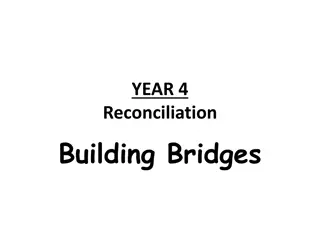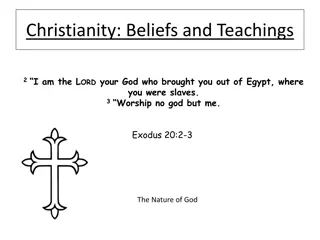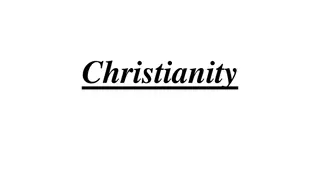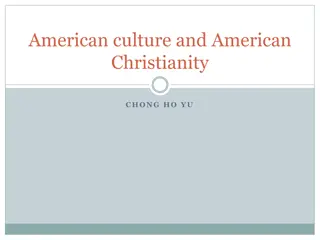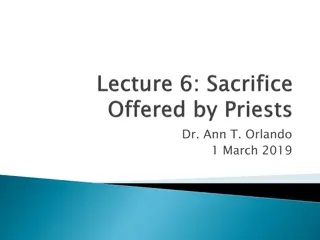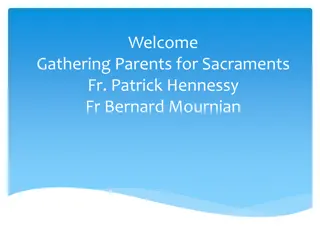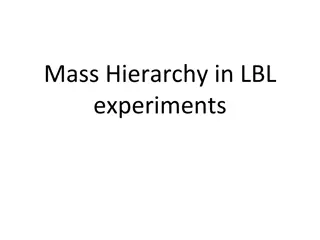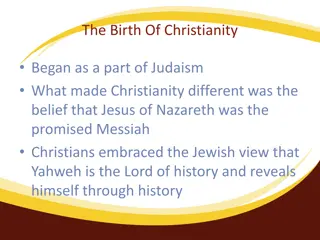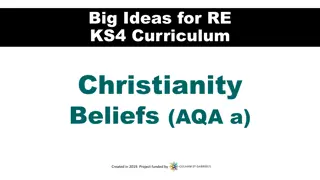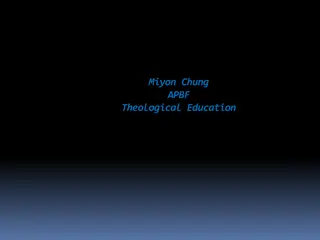Exploring Christianity: Central Beliefs, Sacraments, and Hierarchy
Learn about the essential teachings of Christianity, including the Trinity, Resurrection, and Salvation. Dive into the sacraments of Baptism and Holy Communion, and explore the hierarchical structure of the Church. Discover the significance of holidays like Christmas, Lent, and Easter in the Christian faith.
Download Presentation

Please find below an Image/Link to download the presentation.
The content on the website is provided AS IS for your information and personal use only. It may not be sold, licensed, or shared on other websites without obtaining consent from the author. Download presentation by click this link. If you encounter any issues during the download, it is possible that the publisher has removed the file from their server.
E N D
Presentation Transcript
Warm-up COPY HW Please grab a red textbook; we will be working with information in chapter 37 Please start today notes by defining the term Christianity Please make this page 15
Essential Questions How can religion impact social and political institutions? What happens when different cultures interact with one another?
Doctrine Official teachings of the Church
Central Beliefs of Christianity Trinity: the union of three beings in one God The Resurrection: the miracle when Jesus arose from the dead after he was executed by the Romans Salvation: the belief that God can save people from sin and can grant them everlasting life
Sacraments A sacrament is a sacred rite of Christian churches Baptism A sacrament that uses water to symbolize a new phase in someone s life. Some Christians apply only a little water to an individual s head, while others lower the individual completely underwater. Some denominations baptize babies, while others let people decide when they grow up if they want to be baptized. Baptism marks a person s entry into the Christian church. Holy Communion A Christian sacrament that commemorates Jesus and his Last Supper. Christians have different views of its meaning. Some see the bread and wine as the body and blood of Christ. Others see both as symbolic.
What is a hierarchy? An organization with different levels of authority Patriarch-POPE Head of the Roman Catholic Church Archbishop-oversees several bishops Bishop-oversee several churches Priest-run the church Laity-regular church members
Why do you think the church was ruled by a hierarchy? They used the Roman empire as a successful example.
Holidays Christmas: the holiday that celebrates Jesus s birth Lent: marks the 40 days that Jesus spent in the wilderness before he started to preach Palm Sunday: the first day of Holy Week; it marks when Jesus went to Jerusalem to celebrate Passover Good Friday: the day that Jesus died on the cross Easter: this is the most important Christian holiday; it celebrates the Resurrection
The Great Schism of 1054 The patriarchs in Constantinople believed that they had authority over all Christians, while the pope in Rome believed that he had authority over all Christians. In 1054, the eastern part of the Church split with the western part. The eastern Church under the patriarchs became the _____ _______ _____, and the western Church under the pope became the _______ _________ _________. Both leaders excommunicated (kicked out) each other
Closure Please complete your practice quiz, as a review for tomorrow s quiz Jesus-According to Christians he is the Son of God: The messiah/savior Messiah-savior or deliverer Salvation-believe in Jesus, you are forgiven from sin and can enter heaven Resurrection-to rise from the dead Disciple-follower Apostle-people who spread the word of Christianity Gospel-First four books of the New Testament describing the life of Jesus Persecute- to punish for someone s beliefs Martyr- to die for your beliefs Paul- converted to Christianity and helped spread the word Peter-disciple of Jesus, first Bishop of Rome (1st Pope) Constantine-first emperor of Rome to promote Christianity
Closure Trinity-the union of three beings in one God Sacrament-a sacred rite of Christian churches Baptism-the use of water to mark a person s entry into the Christian church. Holy Communion-sacrament that commemorates Jesus and his Last Supper Hierarchy-An organization with different levels of authority Laity- regular church member Schism-split in the Christian Church Excommunicated-kicked out of the church Christmas-the holiday that celebrates Jesus s birth Lent- marks the 40 days that Jesus spent in the wilderness before he started to preach Palm Sunday- the first day of Holy Week; it marks when Jesus went to Jerusalem to celebrate Passover Good Friday-the day that Jesus died on the cross Easter- the most important Christian holiday; it celebrates the Resurrection
